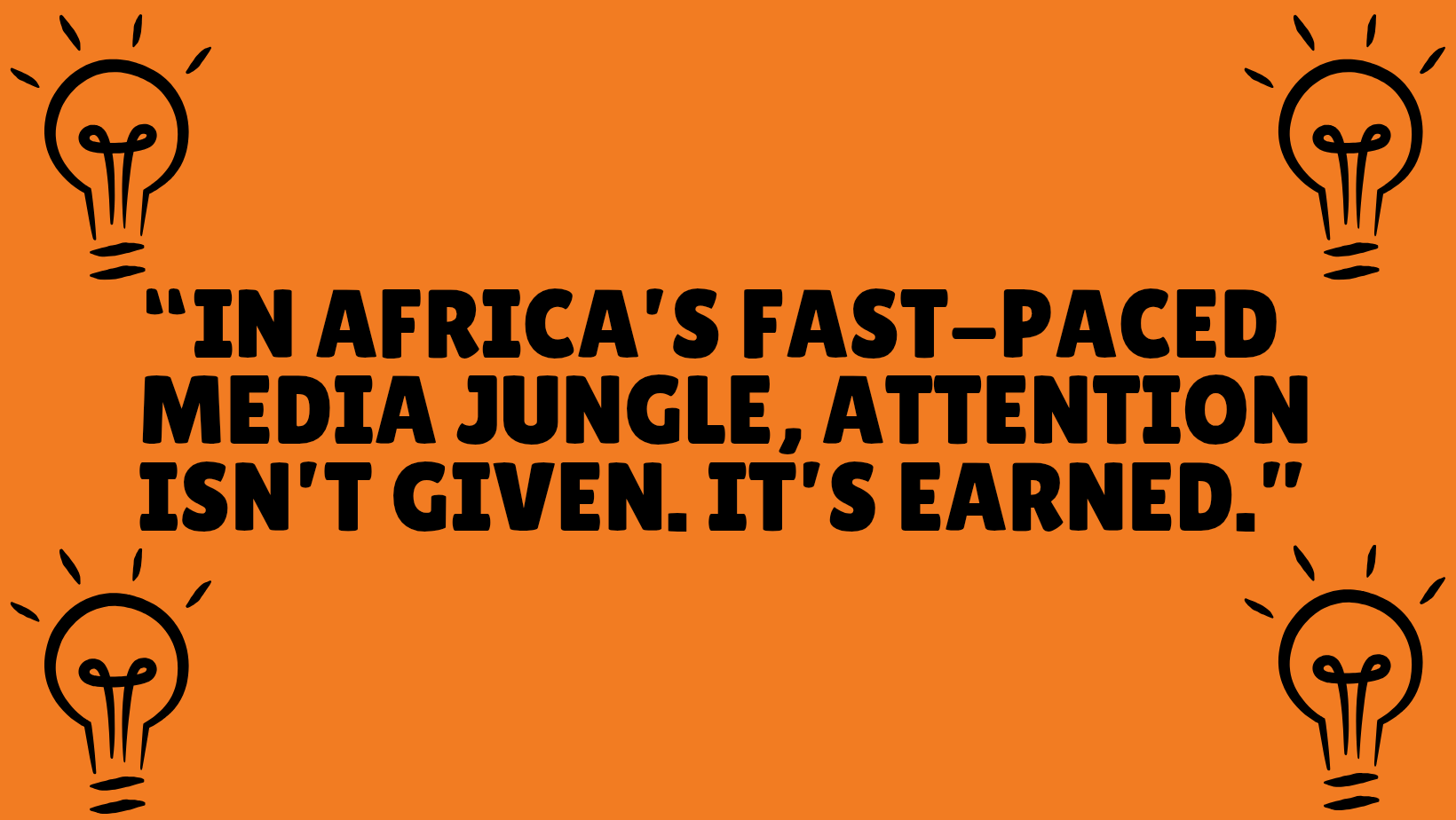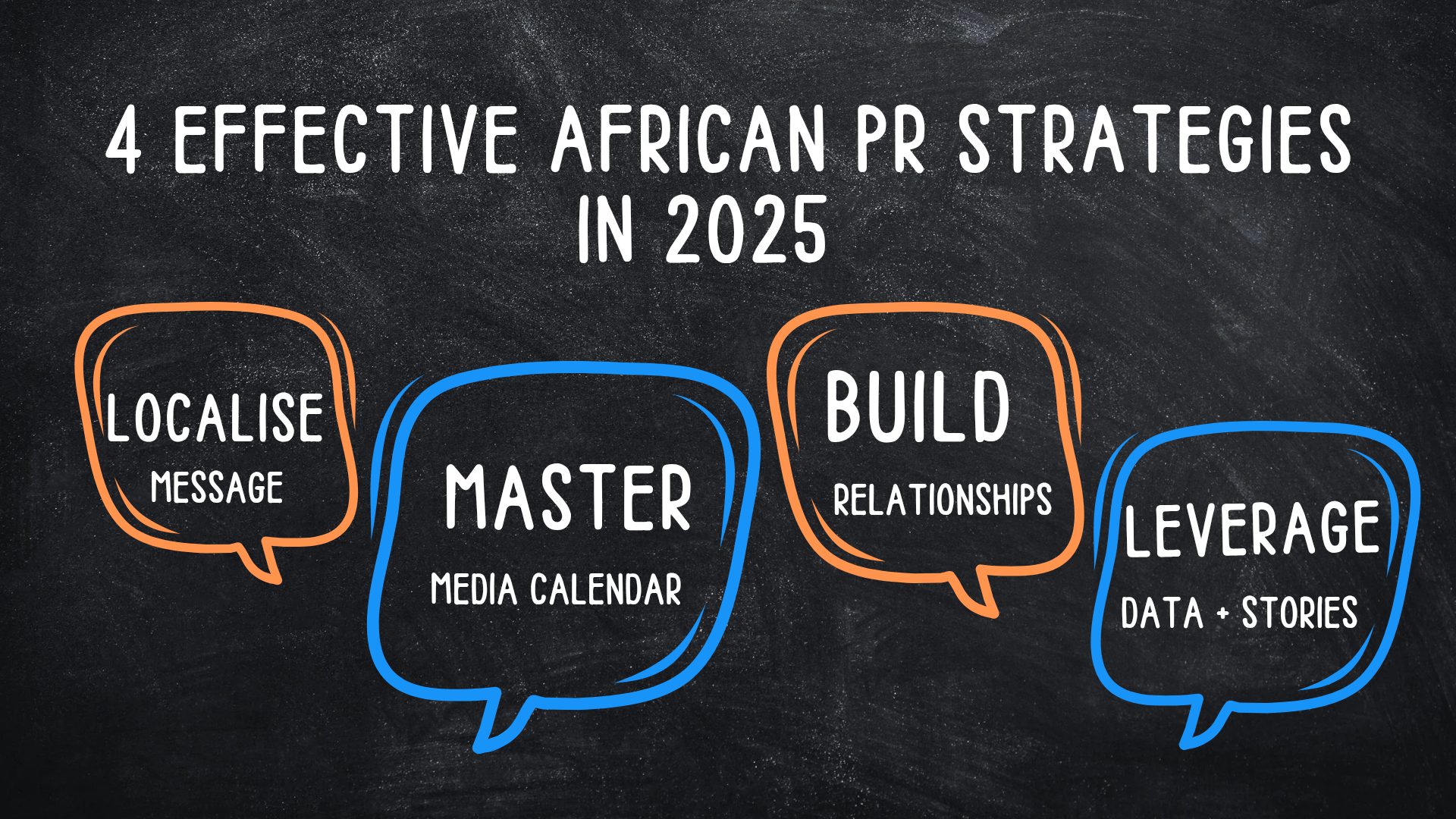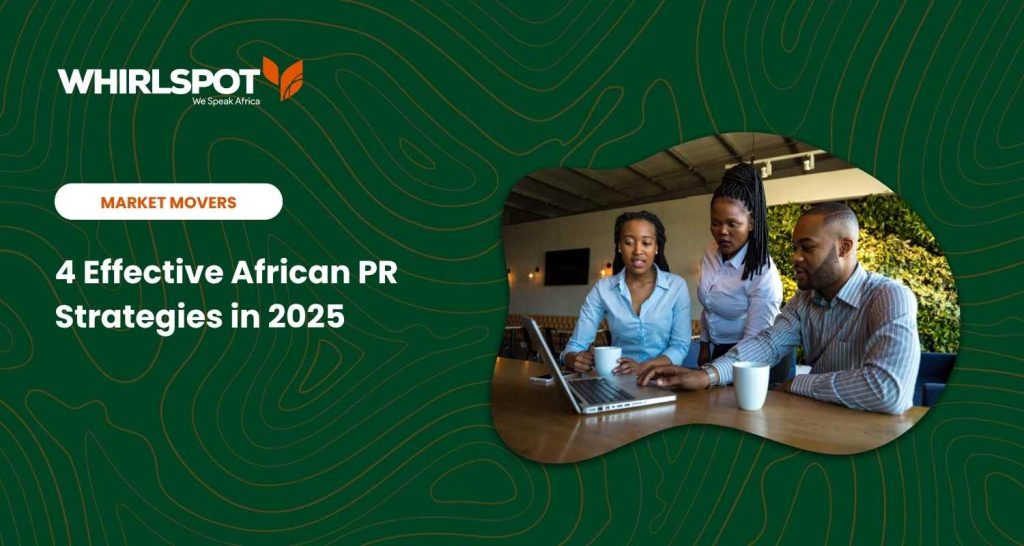Calling all PR professionals.
Communications strategists.
Media relations specialists.
This is not a drill!
You’ve crafted the perfect press release. Your visuals are polished, and so is your message. Still, the media is deaf. Sound familiar?
This is where effective African PR strategies come into play, because the African media scene is constantly evolving. Securing the media’s attention now has more to do with how a good story is told, when it is told, and who needs to hear it, rather than the story itself. The old rules are out. What worked a decade ago might only earn your brand a polite no in 2025.

Why You Need Effective African PR Strategies to Command Attention in 2025
From the surge of localised outlets to the growing influence of digital-first platforms and content creators, tried-and-tested methods are struggling to keep pace. Journalists and media houses are bombarded with pitches daily and have shrinking attention spans.
So, how do you command attention and earn media coverage that lasts?
If your PR strategy isn’t adapting to the new rhythm, you risk becoming irrelevant. Now more than ever, brands need smart, culturally attuned, and impact-driven tactics that gain the media’s attention.
Here are 4 effective African PR strategies that are doing just that in 2025.

Picture this: You’re in the streets of Lagos, Nairobi, or Accra, and an international brand puts out a press release written like it’s meant for The New York Times’ readers in a continent halfway across the world. No context. No cultural nuance. No hook that matters to your local community.
That’s where most PR efforts fail when you speak like you’re above the community, instead of part of it. On the contrary, effective African PR strategies start with relevance.
With global stories everywhere, narratives that feel local, even when they’re big, catch attention faster than wildfire spreading. Take, for instance, an Agritech startup in Oyo that wanted media coverage for their new app that connects farmers to weather data. Instead of releasing generic updates, they pitched it to local news in Yoruba, spotlighting how a farmer in Ibadan used the app to predict seasons for planting. The outcome? They landed not only local coverage but also features in national agricultural publications.

For the umpteenth time, authenticity isn’t just a hot topic. It’s a cornerstone. Overlook it, and risk your brand becoming invisible. Because let’s be honest, adding a journalist to your email list doesn’t mean you have an authentic relationship with them, as relationships move stories faster than press releases ever will.
Effective African PR strategies rely on trust. And trust is earned through consistent engagement, value, respect, and solid relationships.
Suppose a media strategist in Accra is an avid social media user. She doesn’t send bulk emails. Instead, she checks in casually with journalists, drops voice notes about story ideas, and even shares behind-the-scenes photos from campaigns before they go live. Over time, journalists started coming to her for stories. She stopped pitching and started collaborating.
A rarely talked about tip is to comment on journalists’ work. Share their articles. Congratulate them when they win awards. Be a genuine supporter of their craft. In African PR, authenticity is golden.

When it comes to effective African PR strategies, the hard truth is: “Innovative,” “disruptive,” and “scalable” don’t mean anything without proof.
What gets attention are numbers, facts, and stories, not branding buzzwords.
As an EdTech startup, if your campaign helped 400 students get learning tools. If your HealthTech startup’s initiative reduced maternal mortality by 22% in a rural clinic, show it. Don’t hide your wins in marketing fluff; let them speak for themselves.
Let’s say an education nonprofit organisation in Rwanda started including short voice clips from parents and teachers in their PR. These stories were picked up by the media and spread across the continent, warming the hearts of many. Proving that, data and emotive stories are irresistible.

Timing in PR is everything. In Africa, it’s also deeply cultural.
Sending pitches during major holidays can be a double-edged sword, either amplifying your story through effective African PR strategies or burying it beneath the festive noise or local election weeks.
Imagine it’s a day before Africa Day, and you’ve just crafted an unrelated pitch for a new tech startup in Kenya. You’re excited to share it with the media, but newsrooms are quieter than usual, as journalists are covering other stories. Your pitch gets lost in the noise.
Now, picture a scenario where you align that pitch with an event like Africa Industrialisation Day that’s buzzing across the continent. Journalists are already discussing these topics, and your pitch feels like it’s part of the bigger conversation. It’s timely, it’s relevant, and it gets noticed.
To stay safe and gain media coverage, align your story with trending conversations like AfCFTA events or African summits that show an understanding of the media calendar.

Conclusion
In 2025, when attention spans are short and inboxes are packed with pitches, the old-school approaches simply don’t cut it anymore. You need effective African PR strategies that not only resonate but also rise above the noise. The most effective African PR strategies don’t scream for attention, but earn it through consistent relevance, human relationships, and real results.
Ready to take the next step? Need a step-by-step guide on how to find the right digital PR agency for your brand?
We’ve got you covered. Get in touch now!



